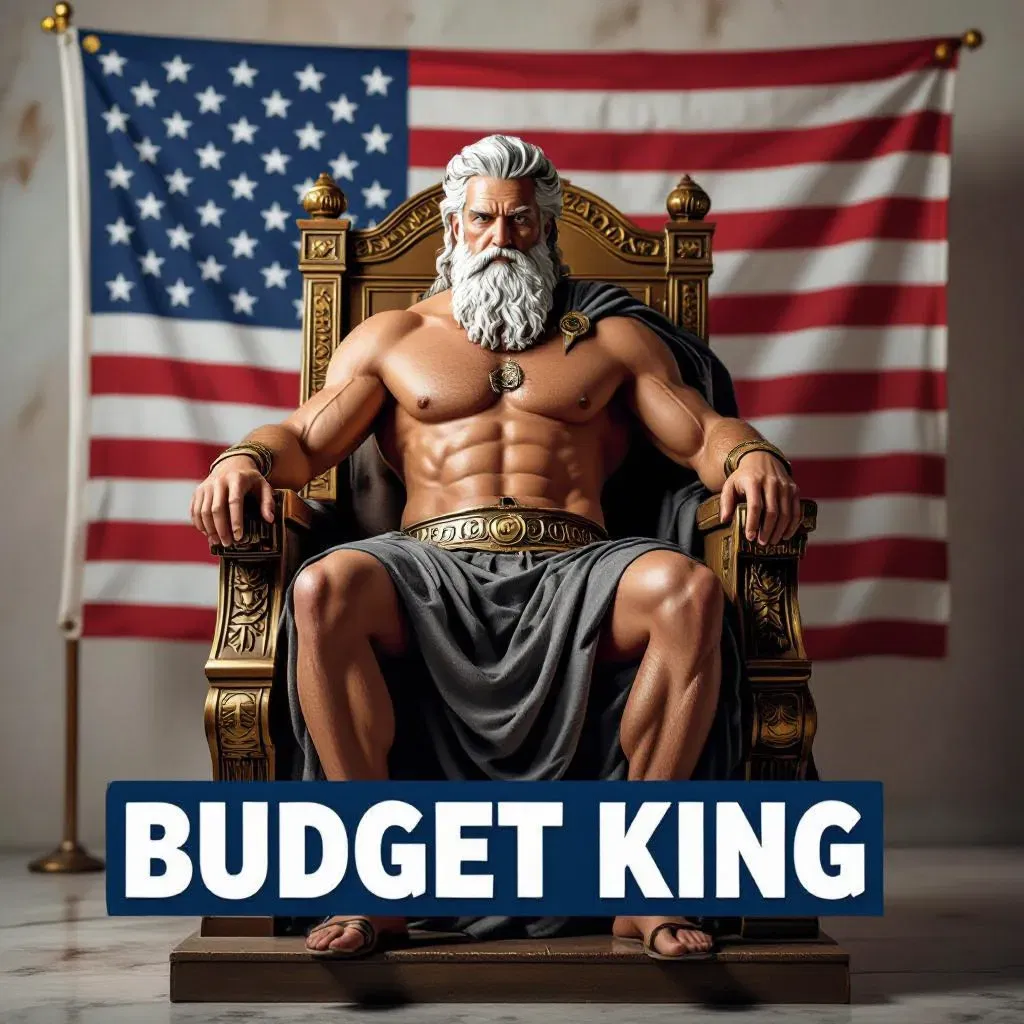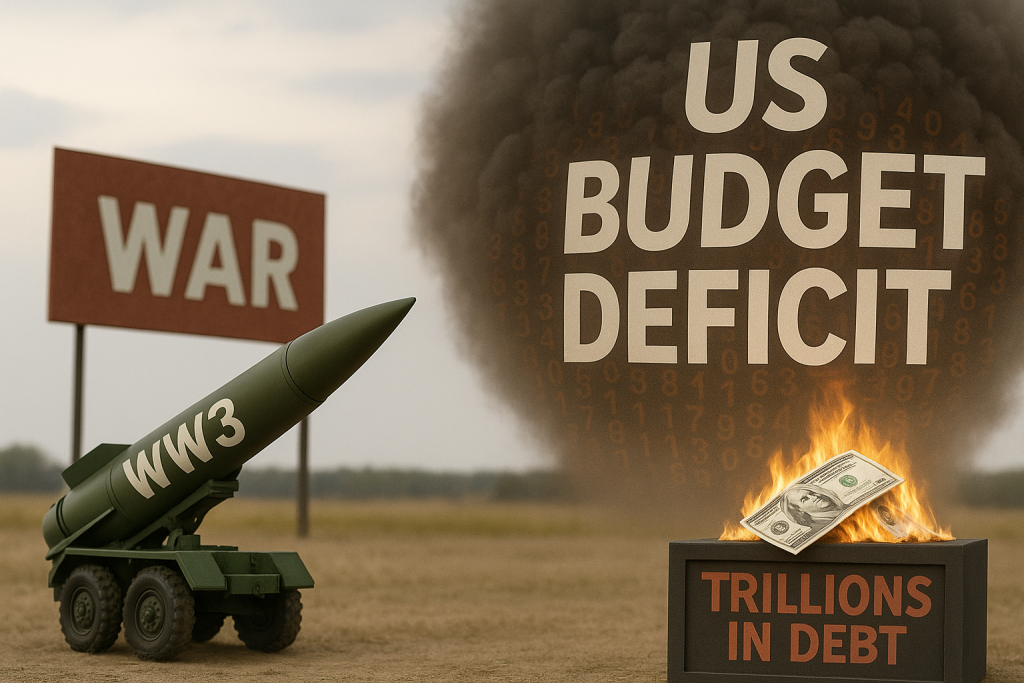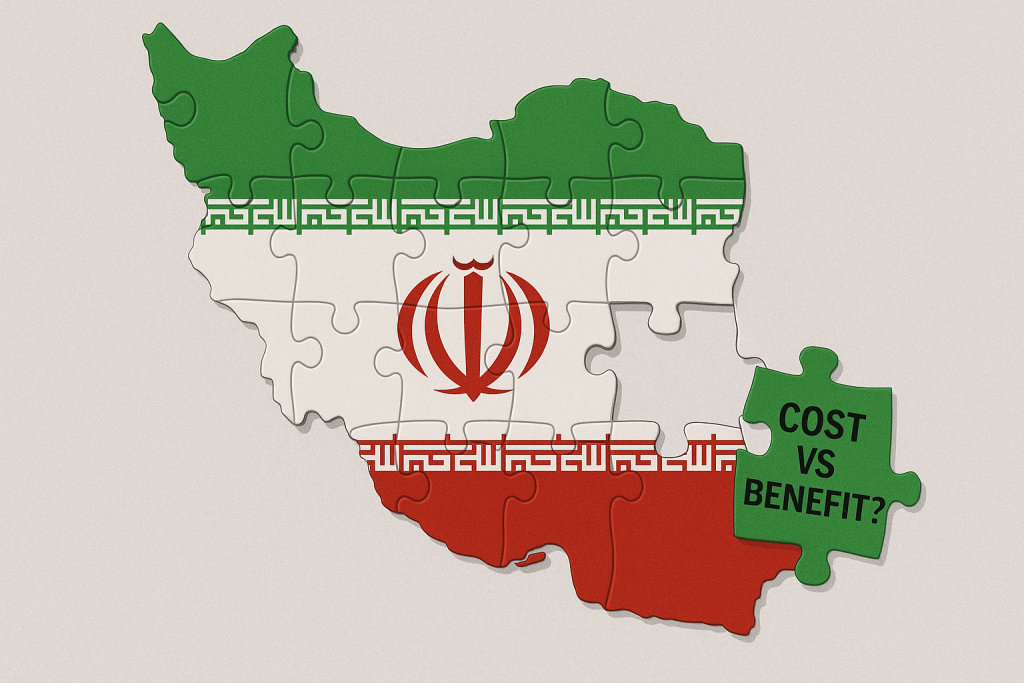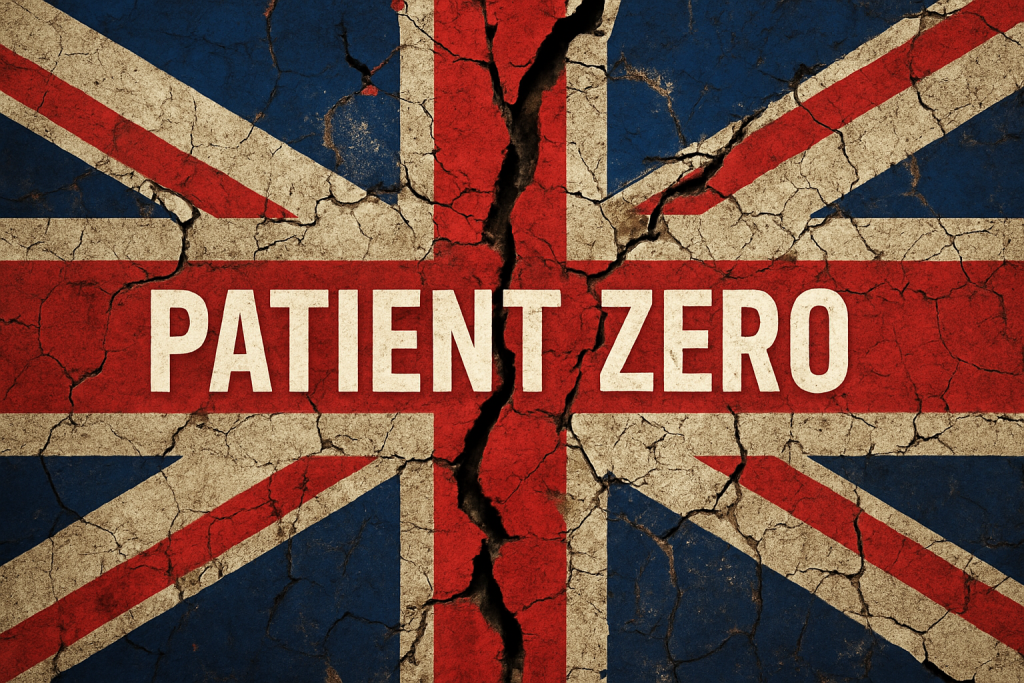Today’s podcast starts off in the year 1175 BC, where the legendary Pharaoh Ramses III was readying himself for battle against one of the most mysterious enemies in all of human history.
Ramses was literally fighting for the survival of his kingdom, and for all Egyptian civilization. And fortunately for Egypt, he won. But it came at a great price.
Ramses’ treasury was depleted from costly battles (not to mention the vast numbers of expensive monuments and temples that he built). And so to make ends meet, he did what any politician would do– he raised taxes.
The ancient Egyptians were legendary record keepers; we have detailed accounts of their commercial activities, financial transactions, and even tax receipts. And we can easily observe the trajectory of Ramses’ economic frustration: tax receipts were declining, evasion was becoming rampant, and production continued to decline.
It’s ironic that, even though Ramses III saved his civilization from marauding invaders, his dynasty soon collapsed due to economic mismanagement.
This is an important lesson that politicians have to relearn over and over again: taxation is a huge disincentive. Whenever you impose a tax, you get less of it.
Policymakers understand this in theory; as Mayor of New York City, Mike Bloomberg famously imposed a ‘soda tax’ on sugary drinks. He knew that imposing such a tax would curb people’s behavior and they would purchase less soda.
This is also why taxes on cigarettes and alcohol exist; politicians understand very well that people will consume less of something that is heavily taxed.
But for some reason, they fail to apply the same logic to productive economic activities. They fail to understand that if you place heavy taxes on capital gains, you’ll end up with fewer investments. If you increase corporate tax rates, businesses will leave for lower tax jurisdictions.
And if you impose absurd taxes on oil companies… then oil companies won’t invest or produce as much. Duh.
Yet this seems to be the new rallying cry of the ruling mob; they claim that “war profiteering” oil companies are benefiting from the “windfall of war” and generating “excess profits”.
And their solution, naturally, is an ‘excess profits’ tax.
There is actually precedent for this. The US government started passing excess profits tax as early as 1916. And it still ranks as one of the most complex, bureaucratic, incomprehensible taxes in history. Trust me, if you think your taxes are complicated now, try being a US company during World War I.
They rolled it out again during World War II, charging a tax as high as 95% on ‘excess profits’.
Obviously the concept of ‘excess profits’ raises a number of questions: ‘excess’ according to whom?
But naturally the people who come up with these ideas have no understanding of business of finance. A few months ago, for example, the President of the United States was whining about Exxon-Mobil’s profitability, and he proclaimed:
“We’re going to make sure that everybody knows Exxon’s profits.”
Now I know the guy is a bit slow and doesn’t usually know where he is half the time.
But apparently he doesn’t even realize that Exxon is a public company, i.e. Exxon’s profits aren’t some closely guarded secret. They HAVE to report their profits. Exxon already makes sure that everybody knows Exxon’s profits…
Yet even the most basic understanding of capital markets and financial reporting remains elusive to the people who set economic policy.
Now there’s obviously an election next week, so I’m not terribly concerned about an Excess Profits tax becoming reality.
But here’s something they could (and would) probably do.
There’s a rather obscure tax called the Accumulated Profits Tax that’s already on the books. This is a tax that corporations are supposed to pay if they hold ‘excess’ (there’s that word again) cash profits.
This tax is rarely enforced. But that’s more of a policy choice than anything else. They could change that policy overnight. And since the tax already exists, they could enforce it immediately as a way to penalize oil companies.
Obviously this would be heinously stupid. Penalizing energy companies means creating more long-term problems with energy supply. And problems with energy supply will keep energy prices high, which will keep inflation elevated.
Will that stop them? Probably not. Bad ideas and terrible outcomes never seem to matter. So they may very well plow ahead with enforcing the Accumulated Profits Tax, or as I like to call it, the Excess Stupidity Tax.
This is the topic of our podcast today, which you can listen to here. I hope you enjoy.
[00:00:00.610]
Today we're going to go back in time to the year 1175 BC to northern Egypt along the eastern portion of the Nile River Delta. It was the 11th year of the reign of the pharaoh Ramses III. And in 1175 BC, ramses was getting ready to fight the battle of his life. He was literally fighting for the survival of his kingdom, the survival of Egyptian civilization, against probably one of the most mysterious enemies in all of human history. This is a period of history known as the Bronze Age, and you're probably familiar with the term.[00:00:33.600]
Historians often refer to prehistory or early history in Stone Age, Bronze Age and Iron Age terms. It goes in that order. The Stone Age was first. It lasted literally millions of years. Archeologists have come across sites of excavated crude tools and evidence of bone and stone tools dating back three and a half, 4 million years ago.[00:00:54.060]
They found in places in Africa, et cetera, but along the way where human beings again, this is going back millions of years, hundreds of thousands of years with human beings with very, very crude, very rudimentary tools. Eventually, people learned how to mine. They learned how to extract rock out of the ground or off of mountainside, etc. Or and then they learned smelting the art and science of extracting metal from rock ore using heat. And one of the most important metals that they are able to extract was tin, simply because tin had a melting point that was easily achievable to very ancient prehistoric people.[00:01:30.090]
Ten melts at about the same temperature as you might bake bread in your oven about 450 degrees Fahrenheit. And this was a temperature that was very easily achievable just with fire and wood as a fuel. And so, little by little, human civilization figured out in different pockets in different regions around the world, little by little started to figure out between five and 100 years ago, they said, oh, well, we can actually take this rock, take this ore. We could smelt the tin and we could mix it with copper. And the alloy of the two of those together created something that we call bronze.[00:02:02.100]
And this ushered in, again, what historians refer to as the Bronze Age. The Bronze Age was a big deal because the first time ever we actually had metallic tools and metallic weapons, and we could use it for everything from warfare to building construction. And so it was a really big deal and was a major advancement in human civilization. But tin was actually a pretty scarce resource back then. They had to literally scrape it from it was a rock called cassidorite.[00:02:27.550]
And this considerate rock was just scraped off of mountainside and some Luyu fields from Afghanistan and a lot of stan countries in Uzbekistan and Tajikistan, in Central Asia, as well as in southern Turkey. The copper came from Cyprus, the tin came from kind of faraway places, and it was a very, very scarce resource back that it was very difficult to acquire and had to go a really, really long way to get it. Ironically, even today it's still the same. A lot of people in the ten industry talk about peak ten and that the world is running out of ten. And some people predicted about 20 years ago that the world was going to run out of ten in 20 years.[00:03:05.320]
Having said that, they are constantly making new discoveries, have been new discoveries of ten in places like Colombia and Mongolia. Top producers today are China, Russia, places like that. But again, back then they didn't have our globalized economy and they were just pulling rocks out of the ground and it was really, really hard to find. And curiously enough, that one of the places in the ancient world that may have been very, very connected to this was the city of Troy. Troy, of course, is located in the Dartnells in modern day Turkey.[00:03:34.870]
This is the narrow strait, that very narrow area that basically connects the Mediterranean to the Black Sea. That was a really important, very strategic location back then, because if you think about it, if you were mining tin in Afghanistan or northern Iran, basically it would be carted to the Black Sea, put on a boat from the Black Sea into what is today modern day Turkey, across through the straits, through the Dardanelles and into the Mediterranean. So that was an incredibly strategic location. The Dard mills have always been a very, very strategic location throughout history. So Troy, the city of Troy, which is right there in the Dardanelles, was sitting right in that all important trade route you had.[00:04:13.260]
Just to the west you had the island of Cyprus, where they reminded the copper, and to the east and to the south they had the tin mines. And so Troy very well may have been the main, one of the main trade routes, main trade arteries in a very strategic point in that trade route for the tin and the copper. Trade very important in the Bronze Age. And it's entirely possible. And there's been obviously a lot of speculation over the past several thousand years about the Trojan War and why it occurred and whether or not it did occur.[00:04:40.480]
And there's a lot of historical agreement now that it did, in fact occur probably around the same time, around 1200 BC. So just really a few decades before Ramsey III came around and may very well have been about trade, could have been about ten, it could have been a territorial war where somebody came in and said, we want to take over the ten trade and the ten mines that are nearby. And of course, according to legend, the legend and the Elliot that was handed down by Homer Troy was famously vanquished after Odysseus, the king of Ithaca, came up with this fantastic idea about, let's give him a horse and let's all hide in the horse and then we go in and slaughter all these people. Who knows if that actually happened? But according to legend, of course, Troy was vanquished and there might have been this widespread migration of all the Trojans leaving their city that had been destroyed.[00:05:29.680]
And that leads to this group of people that again, historians refer to as the Sea Peoples. This is this very, very mysterious group that there's intense historical and archeological debate about who these people were, what are their origins, and there are so many theories. And there are some people that historians who believe and archeologists who believe that the Sea Peoples were the remnants of the defeated Trojans, that after their city was destroyed and sacked, they fled and they migrated. And they sort of cobbled together in this band, this multinational mob that just sort of came together as an army that just viciously raided all across the Mediterranean. Some people say it might have been Italians that were fleeing famine from the Italian Isles.[00:06:10.560]
Some people might say it was people from different regions in the Balkans and so forth. But this is a very, very mysterious group of people because there's very scant historical and archeological evidence about their origin and who exactly they were and where they came from. But we do know that they existed because they referred to over and over and over again. And the Sea Peoples were terrifying. They were like the Mongols at a certain point.[00:06:33.130]
When the Mongols came over thousands of years later and just destroyed everything in their path. This is what the Sea Peoples were doing. The Sea Peoples were vanquishing kingdom after kingdom after kingdom, but they didn't stop and settle. They're more like scavengers. And they took Cyprus, which again was where the copper was.[00:06:49.000]
They took Turkey, which is again where a lot of the tin was. They destroyed the city of Hattusa, which were they burned it to the ground. This is the capital city of the Hittite Empire, which is in modern day Turkey. You hear a lot of these lot of these terms in ancient Assyria, they took canaan, a lot of these terms. If people read the Bible or heard some of these stories, you hear a lot of these.[00:07:09.300]
You hear about the Hittites and the Canaanites, etc. So the Sea Peoples were vanquishing all these kingdoms and they're spreading down through the Mediterranean, going south towards Egypt, and they were terrifying. Everybody was terrified of the Sea Peoples. And we hear there are some historical records of this talk about these people that were coming down and they were absolutely terrifying. And so Ramsay is the third now, it's 1175.[00:07:32.220]
Ramsay's the Third now knows he has to face the Sea People. He had faced them before, a couple of years prior, in 1078 BC. But he needed one. But it wasn't a decisive victory. He had fought them and he had taken his army all the way up to modern day Lebanon and had fought the Sea Peoples there in 1178 BC.[00:07:48.700]
But it wasn't a decisive victory, and the Sea Peoples were returning, and he knew it. And so Ramsay's hatched a plan. And the plan was, let's lure them into the Nile River Delta. This is our turf. We know this ground very, very well, and we can lure them in their ships into the Nile River Delta.[00:08:04.410]
And from what we can tell, it was a really interesting battle. Tactically. Ramsays used his navy to pin Sea Peoples to the coast so that they couldn't actually proceed down the river. That would have been actually very bad because then they could have taken over the rest of the Nile Valley. So Ramsay's actually used his navy to blockade them and pinned them to the coast.[00:08:23.140]
Meanwhile, on the coastline, he had a combined arms force. He had infantry, he had cavalry, he had archers there ready. And they just really destroyed the Sea People, neutralizing the Sea Peoples before they could even get off of their ships. And it was a very, very decisive victory. And Ramsay is supposedly to have settled whatever remaining Sea Peoples had survived the battle to settle them said, look, we defeated you once and for all.[00:08:47.280]
You're done. You're no longer a threat. Those of you who survived, as long as you live in peace, you can stay, but I'm going to tax the shit out of you. And that's what he did. And of course, Egypt at the time had actually a very, very well advanced tax system, and taxation, tax revenue was really important to them because this battle really the war against the Sea People, and there were so many battles, and Ramsey III had to fight lots and lots and lots of battles.[00:09:11.940]
And by the time they finally defeated the Sea Peoples and it wasn't their only adversary, but by the time they finally defeated the Sea Peoples in 1175 BC, the Egyptian treasury was pretty much depleted. They were all out of cash. They had to completely rebuild that, rebuild a lot of things in their civilization, their provincial security. So many things had been just a tremendous disruption. And at the time, Egypt had, which was very common in the ancient world, a very agrarian economy.[00:09:37.420]
It was a very advanced agrarian economy. Egypt was legendary for its aggregate economy, for its yield, because it had predictable flooding. They had managed to harness the flooding of the Nile River Valley and turn that into incredibly advanced agrarian yield, very productive and fertile fields. But you have to think about and today we think about agriculture as just purely food. But back then, agriculture, I mean, that was it.[00:10:02.410]
But it wasn't just food, right? Agricultural production was food, but it was also industrial products. So papyrus would be grown. They would turn it into paper, reeds and straw that would be turned into building material. They would grow textile products for clothing, they would grow different berries and things like that, that they would turn into dyes.[00:10:22.960]
And so these are all actually industrial supplies. Agriculture in the ancient world wasn't just about food. Agriculture was everything. And even the industrial economy was powered on agriculture. It was basically, it had agriculture and they had mining.[00:10:36.790]
And those two things, they would develop all the raw materials that they needed because they didn't have chemical industries and things like that, that we have today. So all that basically came from mining and it came from agriculture. And frankly, most of it really from agriculture. But the wars, the wars against the sea people, the battles of the sea people, and all the different battles that they had against their adversaries and maintaining security in Egypt in this period of the new kingdom, really resulted in a decline of production. Their agriculture was in decline, and that was a normal thing.[00:11:04.200]
Enemies that would come into Egypt, anytime there would be an invading enemy, really anywhere in the ancient world, usually the first thing they would do is destroy the fields. They would destroy the fields, they would destroy the crop production. A lot of times, armies would go in and they would sow salts into the soil to make sure that nothing is ever going to grow here again. So they would devastate, and that was really a tactic to devastate the local economy. And if they devastate the local economy, they knew they would deplete whoever they were invading.[00:11:29.610]
They would deplete their ability to resist and deplete their ability to fight. And this is what happened in Egypt in the war. The battles, all the military conquests resulted in a decline in production. And that decline in production meant lower tax revenue, because Egypt was taking the Egyptian government was taking a portion of its agricultural production as tax revenue. So now they're getting lower tax revenue.[00:11:49.140]
What do governments do when they have lower tax revenue? They raise tax rates. They say, oh, well, our 10% tax rate isn't generating enough tax revenue, so now we have to double the tax rate to 20% just so that we get the same amount of tax revenue we were getting before. And this is the period of time where we start seeing literally some of the first historical evidence, at least in recorded history, of tax evasion. People were literally disappearing with gold and corn and things like this.[00:12:13.900]
And we actually know this to be true, because the Egyptians, the ancient Egyptians were incredible record keepers. They had a really great scribe system, they had a really great accounting system. Egypt had well developed the Egyptian language and the hieroglyphics that was very noun heavy, which is really great when you're trying to look at records, because that's essentially what you're looking at. You're looking at nouns and you're looking at numbers. And in the system that they had the writing system and the scribe system, they had lots of nouns and lots of numbers.[00:12:40.910]
The Egyptian numerology was very interesting because they didn't have a zero, at least in the same way that we think about it today. They had a symbol, for example, the number one, that was just a vertical hash, just a straight line, a vertical line that meant number one. You see 12345 ones and that meant five. They had a different symbol for ten and 1010 and so forth, and they would go on. And so if you wanted to represent a symbol for like 1110, you would show the symbol for 1000, the symbol for 100, and the symbol for ten.[00:13:12.300]
So it was a little bit maybe like Roman numerals, where they didn't have a zero and you'd have C, DXI, that sort of thing that you would see written out. So it was a little bit like that. The funny thing is the symbol for a million, all the rest of them are sort of more, a little bit more sort of lines and squares and things like that. The symbol for a million is literally a little pictograph of a guy holding his hands above his head as if exasperated that a number that big would even exist. That's the symbol for 1 million in ancient Egypt.[00:13:44.010]
And we know all this because we have so many records. And we can see in one of these Bronze Age societies, there are several of these like this. We can go back and we could see even ancient Sumerian tablets in the code of Hammurabi and Babylonian records and so forth. Very, very well developed accounting systems. And the Egyptians were no different.[00:14:03.220]
Their tax system was kind of an inkind system. So it wasn't just money. They would actually go and collect grain. They would actually collect the agricultural products that they were growing and say, hey, a portion of that belonged to the state. And they would put it in granaries and they would put it in temples and they would keep very detailed records.[00:14:19.570]
And we can actually see people disappearing. And in some cases the tax collectors themselves were the ones that were going and doing this. There was one story of a ship captain. This was actually even a couple of decades after the defeat of the Sea Peoples. And there was a ship captain who was sailing, he had all this grain and gold and so forth that they had taken.[00:14:36.960]
It's supposed to be a tax revenue. This guy just disappeared with the money, he disappeared with the grain, and nobody ever found this guy ever again. And so we start seeing the records of the tax receipts and the shipments and so forth, and we can see tax revenue in decline, we can see the decline. And of course, tax rates start going up and we get inflation and we get declines in production, we get tax evasion, we get internal conflict, all these sorts of things that creates really a lot of economic turmoil, in fact, during the rain and the 29th year of Ramses III, to be actually very specific, this is just to tell you how good the record keeping was. It was literally the 10th day of the second month of the 29th year of the reign of the Pharaoh Ramses III.[00:15:16.470]
There was the first recorded labor strike in human history. It was a place called Djarrell Medina. And there were construction workers that were building a vast complex. And the construction workers weren't getting their rations, and they were just tired of it. They were sick of it.[00:15:30.570]
They were tired of not getting what was owed. They were tired of the inflation. They were tired of the corruption, the incompetence, the taxes, and they went on strike. And you actually read this. There is a story.[00:15:41.130]
There are written records of the workers, and they go past the guards, they go past the administrators and say, we're not working, and it's a standoff. And the administration actually caved after just two days. But the strike went on for another three months. After two days, the administration said, okay, fine, fine. We're going, we're getting rations for you, and here you go, here's your food, here's your rations.[00:15:58.210]
But the strike went on because it wasn't just about the rations. It wasn't just about the food. People were just sick and tired of all of it. They had reached their breaking points. They were tired of the inflation, the corruption, the incompetence, and they retired of the high taxes.[00:16:10.380]
And we can see this, the longer term consequences. We can see that eventually even the pharaoh himself, Ramsey III, was assassinated, led to a succession crisis, which led to even more taxes. New taxes. New taxes. They just started taxing new things as, oh, now we're going to tax this, we're going to tax that.[00:16:27.600]
They just came up with new products and everything they could get their hands on to tax that's. What they were taxing. We start seeing because of these new taxes, we start seeing declines in more production, we start seeing more and more economic turmoil. And eventually this period in Egyptian history, this particular civilization, the New Kingdom, just vanished into the history books. This is a very important lesson, and it's a lesson that governments have to relearn from time to time.[00:16:53.610]
And the idea is very simply, that taxes, taxation itself creates disincentives. And politicians know this. They know this in theory, and they apply this. This is why they have cigarette taxes, because they want to discourage smoking. And so they tax it.[00:17:07.500]
They tax it very, very heavily. They also tax it because they know that people are addicted to it and they'll just pay it. This is why when Mike Bloomberg was mayor of New York City and he imposed this soda tax because he's trying to create disincentives, so they said basically any sort of liquid beverage that's like really high in sugar and really high in Carbs, we're going to put a tax on it in New York City. It is very paternalistic behavior, but he did that because he knows that taxes are a disincentive. And the idea is that if we tax something, it will obviously influence behavior.[00:17:37.620]
And politicians know that, and that's why certain of these taxes exist. But for whatever reason, they say, oh, if we apply a soda tax, people will consume less soda. But they don't apply that same logic to productive economic activities. They don't apply that same logic to capital gains taxes and taxes on financial transactions and taxes on really just any productive economic activity, even income, the production of goods and services. They don't apply that same logic and realize, well, jeez, if we tax something beyond a sort of normal rate, particularly a rate that people are accustomed to, and we start taxing something too much, it's going to cause a backlash.[00:18:10.560]
It's going to cause people to gain the system, it's going to cause people to produce less. It's going to have an adverse impact. And this is what happened in ancient Egypt. This is what happens over and over again throughout human history. And you reach a point of diminishing returns, and it really creates a vicious cycle of diminishing returns.[00:18:28.660]
Higher taxes mean less production, less production means less tax revenue. And just like in ancient Egypt, less tax revenue means, oh, now we have to raise tax rates because our overall tax revenue is lower. So again, since 10% wasn't getting the job done, now we've got to raise tax rates to 20%. Well, higher tax rate means even less production, which means less tax revenue, which means higher tax rates. And you end up in this cycle, this really, really vicious cycle.[00:18:51.930]
Governments always seem to forget that lesson. They also vastly underestimate human creativity to avoid taxes that are unnecessarily high, completely unreasonable. Egypt learned this the hard way. Many governments had to learn this the hard way. Many governments have to relearn this lesson over and over again.[00:19:08.440]
As an example, I'm going to pick on jolly old England for a little bit. In the year 1660, the British government, this wasn't really British back then, so the English government passed something called the Hearth tax. So the Hearth Tax is a tax on fireplaces. So what do people do? They just ripped in their fireplaces.[00:19:24.300]
So there were tax collectors that went to people's houses and said, okay, I see one, two, three fireplaces, so this is how much you're going to be taxed. It was a per fireplace tax. So people just bricked in their fireplaces, or they built elaborate facades around their chimneys and around their fireplaces to disguise them as something else. It was a piece of art and not a fireplace. People do all sorts of crazy things to try and get around the tax, and yet even still, they weren't really collecting any revenue from it.[00:19:48.610]
But the tax remain on the books for three decades. Even dumber, still jolly old England. Now this is, I guess, technically now we're getting into Great Britain and eventually into the United Kingdom. They passed a candle tax in 17 seven. Now, the candle tax was an excise tax and excise tax is also essentially a per unit tax on the production of a particular good or service.[00:20:11.050]
So every single candle or certain number of candles was taxed. And so what ended up happening? People said, I'm not going to pay that tax. They just switched fuel sources. Instead of lighting their homes with candles, with wax candles, they switched.[00:20:24.150]
And they actually end up switching to a less efficient fuel source, something called rushlight. Rushlight is like dried brush, basically something that you could grow dry out and dip in lard or, you know, some kind of animal fat or oil or something like that and light it on fire. It was actually a much less efficient source of fuel. Rush light would burn out usually in about 30 minutes. Candles could last hours and hours, days, weeks, potentially, depending on the candle, but people just start using a less efficient source.[00:20:55.780]
So the candle industry plummeted. People just stopped buying candles to avoid the tax. And even still, the law remained on the books for 126 years. In 1710, they started texting playing cards and all that did was it led to widespread forgery of playing cards. So official playing cards had to come with some tax stamp and people said, I'm not going to pay that crazy tax.[00:21:15.660]
So people just started using forged playing cards. The government then even threatened a capital punishment. You would literally be hanged if they caught you with forged playing cards. And people did it anyways because they weren't willing to pay the tax on playing cards. People thought, that's ridiculous, I'm not going to pay tax on playing cards.[00:21:30.430]
In 1745, they passed a tax on glass. This was a tax that was based on the weight of the glass. So heavier glass was taxed more than lighter weight glass. So what do people do? The glass manufacturers across England just started hollowing out the glass.[00:21:43.240]
So they had the pain in the front, the pain in the back, and inside it was just hollow, which is obviously lower quality glass. And people didn't like the low quality glass. So what happened? The entire glass industry moved to Ireland, because in Ireland, they didn't tax glass. So basically, England lost its entire industry to a place that didn't tax it.[00:22:01.030]
Bang up job government. By passing this stupid tax, you essentially destroyed an entire industry. Your country could have benefited from this, but instead it moved overseas and went to Ireland. And the Irish economy flourished because of the glassmaking industry. In 1784, they passed a brick tax.[00:22:17.610]
This was really hilarious. They said, okay, we're going to charge four shillings for every thousand bricks. So what ended up happening? Bricks just got bigger. So instead of the normal small bricks, manufacturers started making really huge ultrasized bricks to get around this with the people.[00:22:32.080]
Instead of having to buy a thousand bricks to build a house, they could buy 100 bricks and not pay the tax. So the government then started reregulating and said, no, you have to make bricks a certain size and all these sort of things. And then people said, okay, screw it. I'm going to switch. And they switched building materials, they switched to timber, and they switched to straw.[00:22:48.510]
And again, that lasted decades until well into the 18 hundreds. And they realized, wait a minute, this is stupid, and this is really holding back our industrial development. But this is the thing with taxes, that they pass taxes. The taxes never generate the revenue that they're supposed to. People engage in all sorts of behavior to avoid the tax, and they learn the lesson that all it does is actually hold back industrial development.[00:23:12.130]
All it does is actually cost the economy. And yet these laws still remain on the books for years and years, if not decades. And that brings us to today. We've been hearing a lot about new taxes. We've been hearing a lot of people whine and complain about excess profits, windfall profits, war profits, even.[00:23:29.260]
And this is quite interesting, because, of course, all that ire is directed at energy companies. Energy companies been raking in big profits because, oh, wow, what a surprise. Oil prices are high, supply is constrained. Well, duh. There's a reason for that.[00:23:42.370]
There's a reason why oil prices so high. There's a reason why supply is constrained. Of course, the politicians, the people in charge, love to blame Vladimir Putin, and obviously Putin has a significant impact on oil markets, but it goes way beyond that, because, if you remember, oil prices are rising, and gasoline prices, they think we're so stupid that we don't remember that. We don't remember that oil and gas prices were rising way before the invasion of Ukraine, way before Putin was gallivanting around the border with his army. That all.[00:24:10.240]
Throughout, even early 2021, prices were rising. And they think we're all so stupid that we don't remember that. But that's the deal. The truth is, is that oil prices, gasoline prices, were all rising in 2021, way before Putin was even a problem. Why is that?[00:24:23.650]
Well, it's because especially in the United States and a lot of places around the world, you've got a lot of government action specifically against oil and gas companies, against energy companies. They're canceling pipelines. They're refusing to lease federal land and provide oil concessions, which it's not an optional just so you guys understand, it's actually required by law that the federal government is supposed to lease land that has these mineral resources, that has these hydrocarbon resources. You're supposed to have an auction. You're supposed to lease them to the old company.[00:24:54.090]
It's required by law. It's not optional. But they just refuse to do it anyways. They create mountains of regulations, not only at the federal level, but the state local levels as well. They create new laws, but they passed a methane tax.[00:25:07.800]
Now they say, oh, now we want you to put the SEC comes and they want you to put your CO2 emissions as liabilities on your balance sheet. All these sorts of things that just make it more and more and more difficult. And it's not even just governments. You've got even private industry. You got people like Larry Fink who are sitting on $10 trillion, $10 trillion at BlackRock.[00:25:28.230]
If it were its own economy, it would be one of the largest economies in the world. $10 trillion in other people's money. That's not Larry Fink's money. That's other people's money. And he uses this and he's weaponized other people's money to push a very much anti fossil fuel agenda, forcing banks to reduce their loans to oil companies, forcing investors to turn their backs on oil and gas companies, pushing activist hedge funds into taking over boards of directors.[00:25:52.690]
You've got major super, major oil producers now that have these activist hedge fund managers that are trying to push them into green energy initiatives. So instead of actually drilling for oil and gas to say. Oh no. We should go and invest in cornbased ethanol. Which is really one of the dumbest inventions.[00:26:09.580]
One of the dumbest things you could possibly do. Because cornbased ethanol. By most objective calculations. Is actually a negative return on investment. Meaning that you actually spend more energy producing cornbased ethanol than you actually get out of the cornbased ethanol.[00:26:23.890]
So it's one of the dumbest things you could do. But, hey, it's green because it's not oil. But it's just these stupid economically irrational things. And that's not even the government. This is private industry.[00:26:36.270]
So you have these people that have weaponized other people's money to push a completely economically irrational agenda, and the end result is DA. Oil prices are high. You end up with less oil, less investment in oil, less production, fails to keep up with rising demand. Demand rises and rises and rises every year. So just to keep oil prices the same, you've got to continue to increase oil production in line with rising oil demand.[00:27:03.760]
If you want oil prices to come down, then oil production, the growth in oil production has to exceed rising demand. I mean, that's just basic common sense. It's basic economics. But none of these people seem to figure it out. So instead they have this very vocal war against oil companies.[00:27:19.380]
The President of the United States incredibly vocal against oil companies. Just in the last couple of days, he's been talking about oil companies having the windfall of war, war profiteering, excess profits, and all these speeches that he give. My favorite one, though, was from a couple of months ago where he talk about he says, oh, Exxon Mobile. They made more money than God. And actually what he said, they make more money than God.[00:27:40.110]
And he says, and I quote, we're going to make sure that everybody knows exxon's profits. And to be honest, we got to file that away under no shit. Exxon is a public company, dude. It's a public company. They're supposed to report their profits.[00:27:54.910]
Everybody knows Exxon's profits because they have to report them. It's required. Every public company reports its profits. They have earnings calls every quarter. They wave their hands, say, here's how much money we make.[00:28:04.390]
And they want to make more money and makes their stock price goes up. But the President United States doesn't even seem to understand basic financial markets, saying, we're going to make sure everyone knows exxon's profits. Yeah, Exxon makes sure that everybody knows Exxon's profits because they're a publicly traded company. How does he not know this? It's just so embarrassing.[00:28:20.650]
But now the thing that they're talking about is something called an excess profits tax. You're hearing a lot more people. It's the usual suspects. We don't need to mention their names. It's the usual suspects talking about excess profits, and we need to tax those excess profits.[00:28:35.560]
And frankly. This goes back to this goes back to even I remember watching when one senator. Hillary Rodham Clinton was running for president back in 2008. 2008. Not even 16.[00:28:51.780]
- And she was talking about all the money that the oil companies were making. Because if you remember. This was before the global financial crisis. And oil prices had reached what was at least a high back then.









